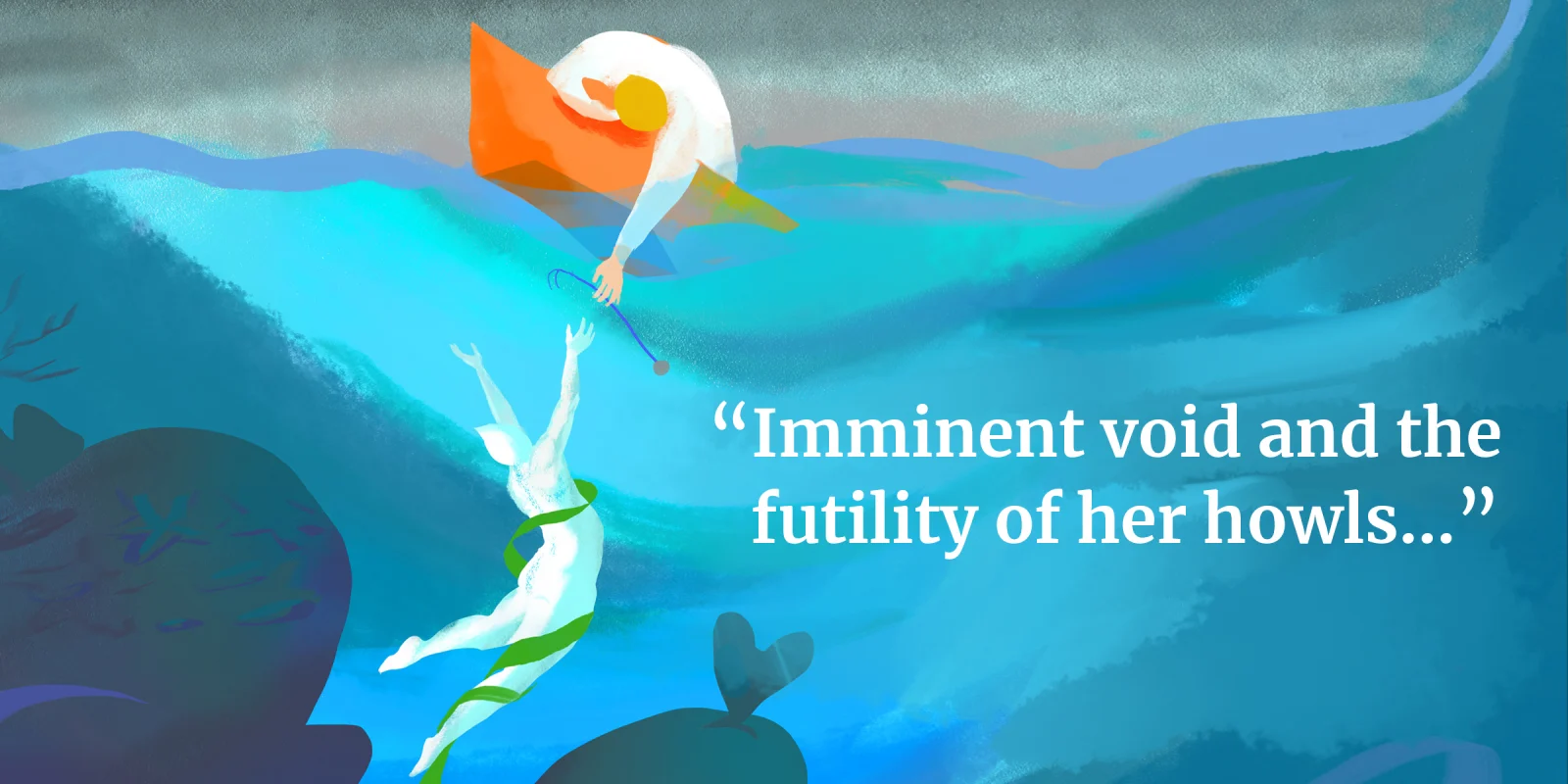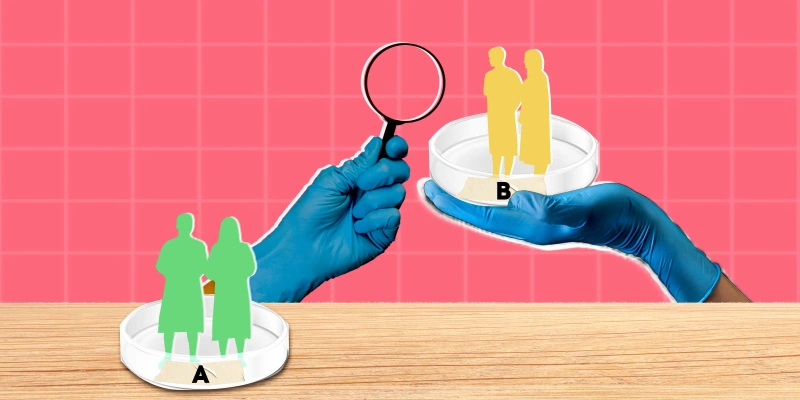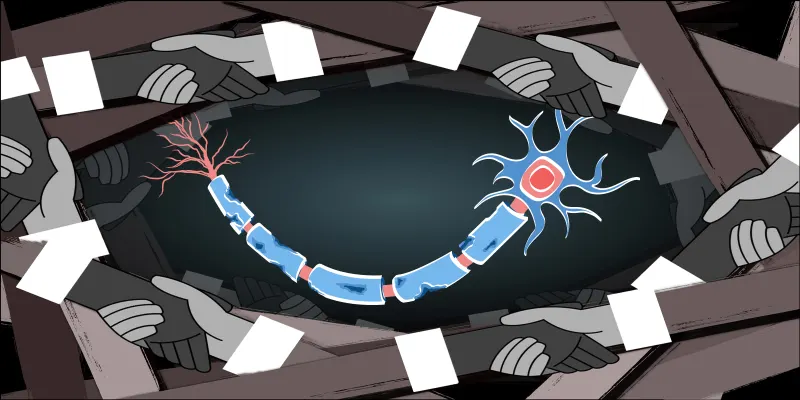This is part of the Medical Humanities series on Op-Med, which showcases creative work by Doximity members. Do you have a creative work related to your medical practice that you’d like to share? Send it to us here.
"The Siren's Lament"
a man is dying, and his wife is howling —
reverberating howls of anguish
that take up residence in my ears for days —
and could travel miles through the hospital vents.
“Oh God help me, take me too!”
She is breathless, as if
there are deep quicksands all about her, as if
there are redwood wildfires consuming all the oxygen in the room,
leaving little freely floating.
She tries to absorb the air in between cries,
and with each wail
the room shrinks, walls caving in,
pain she exhales replacing the oxygen.
Gasping, she is
suffocating on the truth of the imminent void and the futility of her howls.
I desperately wish I could
soundproof my eardrums
against the mourning wails,
out of fear of what would happen
if I allow myself to really hear them.
Am I afraid of feeling the decibels too much and yet,
an atomic fraction of the pain she’s experiencing?
Do I worry I am like Odysseus and she is a siren,
whose sorrow makes her voice so captivating and magnetic and potentially
destabilizing
if I lean in?
A voice strong enough to submerge me in the torrents
of emotions
unleashed. unharnessed. untamed.
I recognize my foolishness —
as if instinctually donning metaphorical noise-canceling headphones is self-preservation,
as if self-preservation isn’t concomitant preservation of others,
as if our healing isn’t inextricably tied.
And so,
being present for her emotional whirlpools and currents,
not just hearing them but listening to them,
I feel at ease again.
We are not Odysseus or the sirens,
but observant, attentive witnesses at the Strait of Messina,
willing to take it all in.
An Interview With the Poet
Why did you choose poetry as a medium? What interests you about it?
Poetry, to me, is the most fitting medium for when my thoughts are too chaotic or emotions too raw to organize and package into nice, flowing grammatical sentences. The more I try to elaborate in paragraphs, the more diluted the message sometimes becomes for me. But in poetry, phrases and images can perfectly capture the meanings of things running through my head, and there’s freedom in withholding excess words or fillers — words and experiences can stand on their own.
In this poem, you write the line "as if our healing isn’t inextricably tied." Can you elaborate more on this?
I've sometimes gotten the feedback that it'd be beneficial for me to maintain more distance from patients to avoid 'burning out' or being emotionally spent, so in trying to take that advice my learned response when witnessing her pain was to try to distance myself from it. While I understand the intention of protecting ourselves from the emotional investments when working with patients and families, the more subversive side of me continues to believe that healing and well-being is really a communal or unifying process, i.e. we can't separate ourselves from the pain of others because "another" person's pain is equally our own, especially by the shared nature of universal experiences of grief, death, loss, physical/emotional/spiritual pain, etc. By witnessing or helping shoulder others' grief around us, it doesn't weigh us down, but it helps spread the weight a bit and allow us to feel more supported, connected, and involved. In this case, separating myself from this woman's grief wasn't emotionally healthy or self-protective; the most self protective thing was to recognize how grief is a strong connecting force.
How long have you been writing poetry? Which poets do you draw inspiration from?
I grew up listening to some Indian poetry, and in college, I “discovered” Western poets, but I’ve only recently welcomed the task to write myself. My favorite poets include Louise Gluck, Mary Oliver, Naomi Shihab Nye, and Maya Angelou.
How does poetry relate to your medical practice?
Maintaining presence and curiosity are foundational for healing (in many senses of the word) and forming therapeutic relationships. I hope to continue reflecting and being thoughtful about my experiences as I train, and am hoping to earn an MFA one day!
Tulsi Patel is a third-year MD/MPH student at Northwestern University Feinberg School of Medicine. She graduated from Columbia University in 2019 with a bachelor's degree in neuroscience.
Illustration by Jennifer Bogartz





